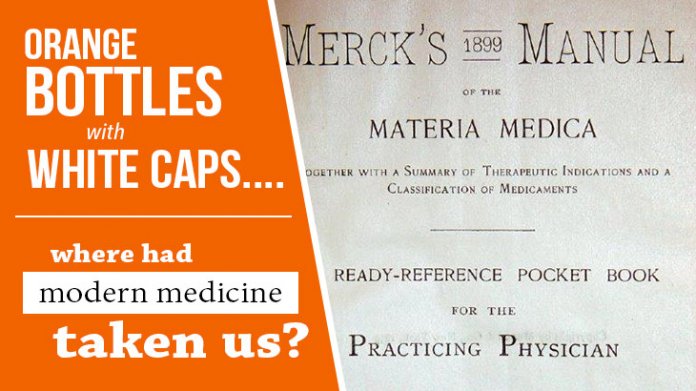There’s no denying that modern medicine has made many wonderful advances which have benefitted the world. Numerous lives are saved each year because of medical innovations, and when an emergency situation arises, trained professionals are there to take care of us with the newest technologies. Pharmaceuticals, surgeries, and other medical practices can reduce suffering and save lives.
However, there has been one not-so-wonderful side effect of the rise of modern medicine: the medical industry has become so dominant that many people have forgotten that there are other types of medicine available to them. When people today think of “medicine,” they often picture a hospital, a doctor’s office, and a pharmacy lined with rows of orange bottles with white caps brimming with pills.
Due to this mindset, people may turn immediately to a drug or medical procedure the instant that something goes wrong with their health. In certain situations, these modern interventions are useful and necessary, but oftentimes they are not. In a rush to feel better, many people overlook the natural medicines available to them. There are many powerful medicines that may solve a problem effectively without the need for an invasive procedure, or a prescription drug with a laundry list of side effects.
When I was in medical school, The Merck Manual, a prominent textbook of internal medicine, celebrated its one hundred-year anniversary with a special centennial edition. This special edition included a re-release of the first edition Merck Manual, originally printed in 1899. Paging through it, I found that every single medicine detailed inside was a natural remedy. From a historical perspective, the modern pharmaceuticals that so many people think of as “medicine” are all brand new. Synthetic chemical medicines have only been in widespread use for about 50 years. Before that, we relied on nature.
Natural medicine is not out-of-date, as some people may think. Instead, it should be the first place we turn when our bodies or minds are ailing. These remedies are gentle, and tested by time. I’m not just talking about herbs and plant extracts: healthy lifestyle changes are medicine, as well. Nutritious food is medicine. Movement is medicine. Sleep is medicine (and happens to be my drug of choice.) Managing stress can be medicine. Interacting with others, and changing our mindsets in a positive manner, can be medicine as well.
In my office, I have a collection of vintage natural remedies displayed along the windowsill. These bottles are more than a decoration: they serve as a reminder that old remedies, natural remedies, should still hold a prominent place in today’s world of pills and procedures. They are no less effective today than they were hundreds of years ago, though they are often underutilized.
In many health situations, natural remedies are all that are needed to get the body back to functioning optimally. Sometimes, pharmaceuticals and other medical interventions are necessary, but in many cases, there is no harm in trying a holistic approach first. I see many patients who have been through needless drug regimens and surgeries for conditions that could have been treated naturally. These patients could have been spared a lot of strife had they tried the natural route before they took pills or went under the knife.
All in all, what the Western world needs is to broaden how we look at medicine. While it’s great that we have the medical advances that we do today, the medicines all around us should not be dismissed. Health is not about depending on a collection of orange bottles with white caps. There is a cornucopia of medicine found in nature, I want to help you learn to use it.
– Dr. Joshua Levitt


